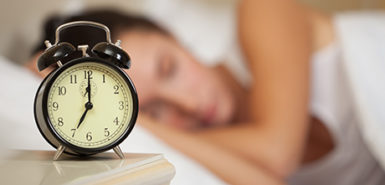
The job description for nurse, police officer, factory worker and firefighter might not have much in common.
But chances are good that at some point, these workers—along with those in many professions—will all find themselves working when most of the world is wearing pajamas.
About 16% of working Americans usually have a non-daytime schedule, with 6% on evening shifts, 4% on nights and the remainder working rotations, split shifts or irregular schedules.
Many people—from Uber drivers to trauma surgeons—love these shifts. They often pay better. Commutes are easier. They can also help families overcome daycare challenges.
The trade-off: Many struggle to find a sleep routine that works.
“Insomnia is also a big problem for these workers,” Kelly Waters, MD, a sleep specialist at Spectrum Health, said. “So is a problem known as shift-work sleep disorder.”
Working different shifts—overnight, evening or any combination—is often associated with other poor health outcomes.
Among them: Those who work night shift are more likely to be obese. They’re also more prone to develop depression and struggle to control diabetes. Working nights also presents an increased heart disease risk.
“I see people who have gained weight, which impacts their heart health,” Kristi Veltkamp, RD, an outpatient dietitian with Spectrum Health Nutrition Services, said. “Their cholesterol goes up. And there seems to be a little bit more insulin resistance. Our metabolic pathways seem to respond a little differently at night.”
With the right strategies, however, these workers can develop healthier routines for sleep, exercise and nutrition.
Shape a sleep schedule
As tempting as it may be for a worker on night shift to flip the schedule and become a daytime person on days off, it’s better to maintain a more consistent bedtime and wake-up time, Dr. Waters said.
So if you normally end your shift and go to bed at 9 a.m., you should maintain that on days off. Go to bed at 9 a.m. and wake up at 4-5 p.m.
Block out light
“Daylight is very stimulating for wakefulness,” Dr. Waters said. “When light seeps in, you’re not getting the full rest, making it harder to stay asleep.”
Wearing sunglasses on your way home from work can also blunt the stimulating effect of the morning sun.
Work out regularly
“Exercise requires muscle repair, which triggers that deep, slow wave sleep we need,” Dr. Waters said.
You may need to experiment to find the best time for you. In an ideal world, morning is the optimal exercise time, she said.
“It gets our heart rate up, our cortisol up,” she said. “That makes plenty of people feel ready to face the day.”
For evening workers or night shift workers, however, this may not work.
A possible hack, with a word of caution: Try to get your workout in just before you plan to sleep. Exercise causes the body’s temperature to rise and then drop. The onset of sleep can also cause your temperature to drop.
Exercising right before bedtime might not work for everyone. But for some people, it could help with relaxation and a post-workout temperature drop to trigger sleep.
“The physiologic process of temperature drop could work in your favor,” Dr. Waters said.
Develop bedtime rituals
Dr. Waters said she recommends finding a separate place—a cozy chair, for example—to sit for a bit, transitioning from the workday to the sleeping period.
“Just find a place where you can put the day away and rest and relax, calm your breathing, calm your heart rate, settle your mind,” she said. “And then, when you feel impending drowsiness—or it’s closer to that typical time that you’re falling asleep—that’s when you move to the bed.”
Schedule meals
Just as going to bed and waking up at the same time helps, eating is healthier when it’s done in predictable patterns. Veltkamp said she suggests eating three to five small meals within an eight-hour window.
“That seems to be more beneficial than grazing all day,” she said.
Snack smarter
Shift workers are likelier to eat unhealthy foods and develop sub-optimal snacking habits, Veltkamp said.
That’s partly because daytime workers often have a range of restaurants and takeout options. Overnight workers may have access to little beyond vending machines or convenience stores.
Buy healthier snacks ahead of time and keep them on hand.
Cut down on caffeine
There’s a reason coffee is the most commonly used drug in the world. It works. So do ultra-caffeinated energy drinks.
A few cups of coffee or other caffeinated beverages are fine, but be mindful about your intake. Coffee drinks are also often full of sugar, contributing to weight gain.
Stay social
Loneliness is a real risk. Look for ways to get together with friends and family. Invite people to join you at meals—a 9 p.m. lunch, for example, or a 4 p.m. breakfast.
Just because you work while they sleep doesn’t mean you can’t stay connected.
 /a>
/a>
 /a>
/a>
 /a>
/a>